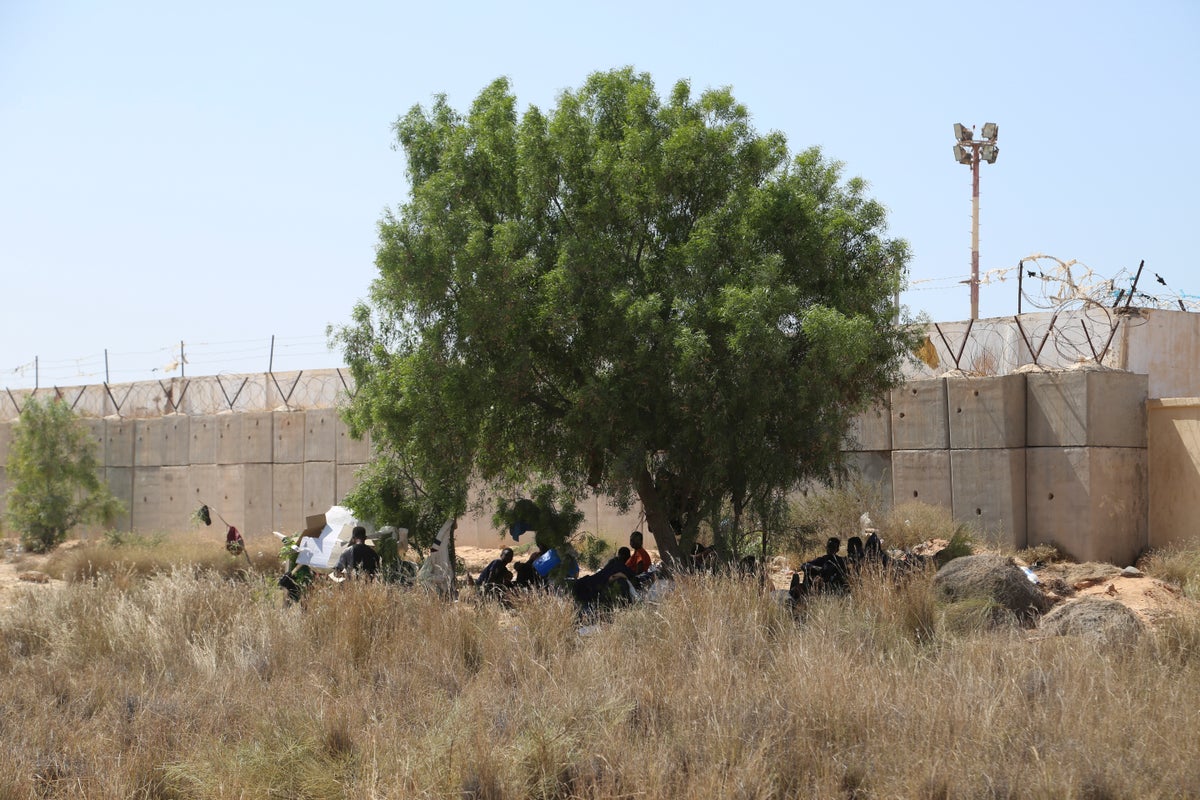
Tunisia and Libya took back 276 sub-Saharan migrants stranded in a desert region along the border between the two countries and brought them to shelters on Thursday.
Tunisia has been blamed for dumping the migrants in the sizzling heat in the no-man's land near the border post of Ras Jedir. Libya said Wednesday that 27 migrants from sub-Saharan Africa were found dead by Libyan authorities in the western desert near the Tunisian border.
Tunisia's coast — and specifically the eastern port city of Sfax — has recently taken over from Libya as the main jumping off point for African migrants setting off in fragile boats for Europe across the Mediterranean Sea.
“We took charge of a group that was sheltered by the Tunisian Red Crescent and the Libyan side did the same so that the migrants were evacuated from the zone,” Tunisian Interior Ministry spokesman Faker Bouzghaya told The Associated Press.
“A consensual solution was ... reached to end the problem of the presence of illegal immigrants in the border area between the two countries,” a Libyan statement said.
Tunisia took 126 of the migrants, including 45 women and eight children, and transferred them to two towns in the southeast, an operation coordinated by the Tunisian Red Crescent and the Organization for Migration, the Interior Ministry said.
On the Libyan side, Ahmed Hamza, chairman of the National Human Rights Committee in Libya, a local rights group, said 150 migrants were transferred by Libyan boarder guards to shelters in the capital, Tripoli.
Both countries confirmed the border area had been cleared by late Thursday.
Details of the accord were not made public, beyond the detail on bringing the migrants to shelters and stepping up patrols to ensure the desert area remains migrant-free.
The development follows an agreement Wednesday during a meeting in Tunis of Tunisian and Libyan interior ministers, accompanied by large delegations. A range of security issues was on the table, including how the two North African countries can stem the tide of migrants fleeing conflict and poverty.
Tunisian Interior Minister Kamel Fekih recently told the AP that authorities had retrieved 901 bodies of migrants from the sea from January to July 20.
Human traffickers have profited from instability in Libya since the 2011 toppling of autocrat Moammar Gadhafi, exploiting migrants fleeing conflict and poverty to make the dangerous sea crossings to Europe.
Tunisia has since been widely denounced by human rights groups for dumping some migrants in the desert border area with Libya and also with neighboring Algeria to the north.
Fekih, denied any collective expulsion of migrants while conceding that some small groups had been pushed back into the desert.







